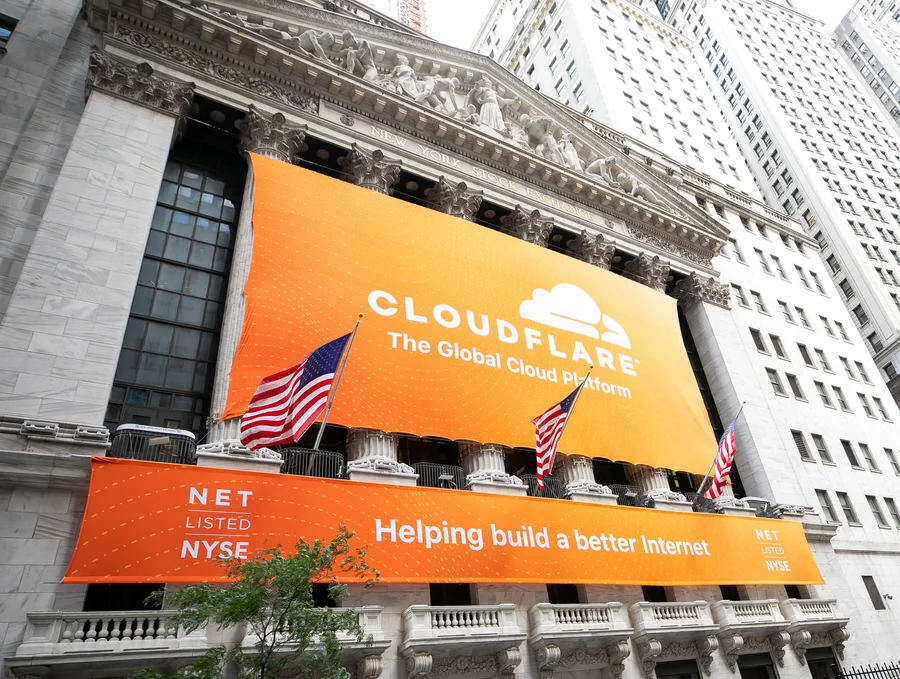Cloudflare reports on traffic shifts and cyberattacks during the US election, highlighting global implications for digital democracy and cybersecurity.
In an increasingly digital world, elections have become as much about bits and bytes as they are about ballots.
The integrity of democratic processes now hinges not only on the physical act of voting but also on the robustness of the digital infrastructure that supports it.
From voter registration websites to online campaign platforms, the internet plays a crucial role in modern elections.
However, this digital dimension of democracy has brought new challenges, particularly in the realm of cybersecurity.
As nations worldwide grapple with the task of safeguarding their electoral processes from digital threats, the experiences of major elections, such as the 2024 US presidential race, offer valuable insights for the global technology community.
Cloudflare, a leading internet security and content delivery network provider, has conducted a comprehensive report on internet traffic patterns and cyberattacks observed during the 2024 US election.
The findings provide a window into the evolution of digital democracy and the critical role of cybersecurity in protecting it.
Cloudflare: cyberattacks surge but fail to disrupt
According to Cloudflare, the company observed a significant increase in cyberattacks targeting election-related websites in the lead-up to and during the 2024 US election.
“Cloudflare’s goal is to ensure that sites that enable democracy — such as voter registration sites, election information portals, campaign websites, and results reporting platforms — remain secure and accessible”. – Cloudflare blog post.
The report details specific attacks, including a series targeting a high-profile campaign website.
Additionally, on 1 November, an attack reached 700,000 requests per second, followed by two more waves at 311,000 and 205,000 requests per second.
Yet despite the high volume of attacks, Cloudflare reports that there were no significant disruptions to the targeted websites during this period.
The company also noted that the volume of DDoS attacks in the days leading up to the 2024 election far exceeded those observed during the 2020 US presidential election where Cloudflare blocked nearly 100 million and 25 million malicious HTTP requests respectively.
KEY CLOUDFLARE ACHIEVEMENTS REGARDING THE US ELECTION:
- Cloudflare blocked a series of DDoS attacks on a major campaign site
- Over 16 hours, Cloudflare blocked more than 6 billion malicious HTTP requests aimed at US election-related websites
Yet in the first six days of November 2024 alone saw over 6 billion such requests blocked.
Cloudflare comments in a blog: “Throughout 2024, we’ve collaborated with CISA (Cybersecurity and Infrastructure Security Agency) and the Joint Cyber Defense Collaborative, briefing over 300 election officials on emerging threats and conducting 50+ calls with state and local governments to review security practices.
“Additionally, we held webinars on cyber threats to election groups and strategies for protecting election infrastructure.”
Internet traffic patterns reveal election impact
Beyond cyberattacks, Cloudflare also sheds light on how the election influenced internet usage patterns across the US.
The company observed that internet traffic in the US peaked after the first polling stations closed, with a 15% increase compared to the previous week.
Interestingly, the report notes that central states saw higher percentages of internet traffic growth than coastal ones.
Maine, South Dakota and Montana each experienced a 44% increase in traffic, while more populous states like California (8%), Texas (19%), New York (22%) and Florida (23%) saw more modest gains.
The data also revealed significant spikes in traffic to news media outlets, polling services and election information websites.
Additionally, DNS traffic for polling services websites peaked at 22:00 ET on election day, showing a 756% increase compared to the previous week.
Meanwhile, News media outlets saw a 325% increase in DNS traffic between 22:00 and 23:00 ET.
These traffic patterns offer valuable insights into how citizens engage with online resources during major political events, information that could be crucial for businesses and organisations operating in the digital space.
Global implications for digital democracy
While focused on the US election, Cloudflare’s findings have broader implications for the global technology industry and digital democracy worldwide.
The report stresses the growing importance of cybersecurity in safeguarding democratic processes and highlights the need for continued innovation in this field.
Cloudflare’s efforts to protect election infrastructure also extend beyond the US.
Through programmes like Project Galileo, the Athenian Project and Cloudflare for Campaigns, the company provides free cybersecurity resources to a wide range of organisations involved in elections globally.
These initiatives protect over 800 websites related to election infrastructure, including 423 websites in 33 US states and more than 354 campaigns and 34 state-level political parties.
This means that as more countries around the world embrace digital tools for civic engagement, the lessons learned from high-profile elections like the US presidential race become increasingly relevant.
As the Cloudflare blog says: “Cloudflare’s goal is to ensure that sites that enable democracy — such as voter registration sites, election information portals, campaign websites, and results reporting platforms — remain secure and accessible, especially under heavy traffic periods or cyberattacks.”



